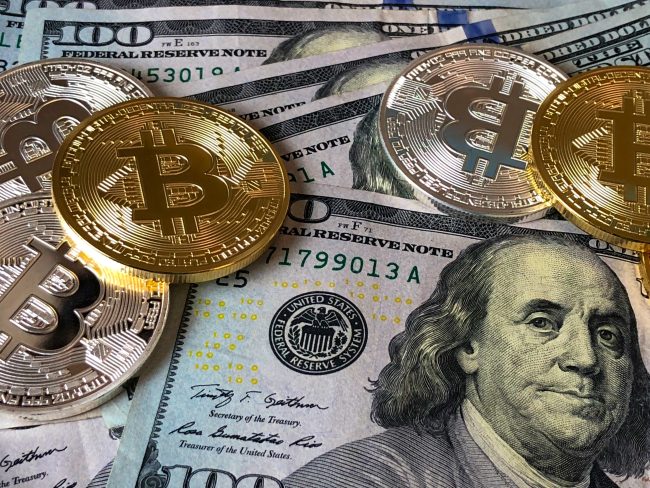Two significant crypto-related statements were made on February 1, 2022, by India’s Finance Minister Nirmala Sitharaman as she unveiled the country’s budget for the coming year.
First, the government wants to tax all cryptocurrency profits at 30% and charge a 1% source tax on all transactions (TDS).
The second mention of a deadline is that India plans to launch the digital rupee (also known as a CBDC, or central bank digital currency) during the current fiscal year.
The announcements’ most significant source of user misunderstanding is how cryptocurrency may be taxed while being illegal. The government has not made any claims that cryptocurrencies are legitimate.
In other words, it will take some time until a bill giving cryptocurrency the final legitimacy or making it legal is passed. Still, the government is not waiting for that to happen before raising taxes on citizens. To determine whether cryptocurrency is legal—that is, whether it can be accepted as anything other than a form of legal tender or money to buy and sell anything—India is waiting for crypto-specific legislation to be submitted in the parliament, discussed, and then passed by both chambers.
This post will address all of your questions regarding India’s regulatory structure, including if cryptocurrency is allowed, how much tax residents must pay, whether crypto could still be outlawed, and other related questions.
Why Is It Called A ‘Virtual Digital Asset’?
Virtual digital assets are any “information, code, number, or token (not being Indian money or foreign currency) produced using cryptographic means or otherwise, by whatever name called, providing a digital representation of value traded,” according to the budget plan.
The term “digital” is used since cryptocurrencies or NFTs are not physical legal money like a 100 rupee note, but rather a digital representation.
For tax purposes, the government uses a comprehensive definition of “digital assets” or “crypto assets.”
Is Crypto Legal In India?
Many online tweaks are claiming that crypto has been legalised in India. Is cryptocurrency legal in India now? Buying and selling of cryptos is not unlawful.
Binance tweeted that “crypto just became legal in India” when India revealed its new proposed guidelines.
After the announcement, numerous government representatives spoke with the media and stated that the new plans do not mean that cryptocurrency is legal.
According to the Finance Secretary, purchasing or selling cryptocurrencies is lawful in India. Never will Bitcoin, Ethereum, or NFT be accepted as legal money. Crypto assets are possessions whose value is decided by two parties. Although you can purchase gold, diamonds, and cryptocurrencies, their worth will not be what the government has approved.
Similar to how the Revenue Secretary said it best in an interview, the new rule will “provide certainty in taxation of cryptocurrencies.” Gains from cryptocurrencies have always been subject to taxation. However, unless the legislation (to regulate such assets) is introduced in Parliament, this new rule offers no indication of its validity.
Taxation alone does not constitute legality. It is incorrect to associate taxation with endorsing the legitimacy of cryptocurrencies.
How Much Tax Is Charged?
Cryptocurrency investors are subject to a 30% transaction tax. In some cases, individual investors may also incur an additional 1% in taxes. Every time an investor makes a financial gain, a 30% tax will be due. The 1% tax, however, will only be imposed under specific circumstances.
However, as the government has not yet established how taxes could operate if the recipient is abroad, foreign transactions might be free.
A cryptocurrency investor gains 100 rupees if they transfer 100 rupees to an exchange to buy bitcoin, which doubles in value. The investor will be charged 30% of the gain of 100 rupees under the newly stated tax regulation. As a result, the investor will only receive 170 rupees.
At the time of the sale, the 1% tax TDS will be applied to the sale value (in this case, 200 rupees).
However, how much money investors trade on exchanges and who those investors determine whether tax deducted at the source will be applied or not.
If they invest more than 10,000 rupees, people or businesses with a net worth under 50 lakh rupees (approximately US$66,500) are subject to taxation with 1% TDS. Less than Rs. 10,000 in investments are exempt from this tax. Persons must pay 1% TDS on amounts over 50,000 rupees. If investors do anything with their cryptocurrency investment other than converting it back to rupees in their bank account, they will be subject to a 30% tax.
While the 30% tax is the responsibility of individuals and their chartered accountants, TDS taxes are submitted to the government regularly by exchanges.
When the buyer or recipient of a cryptocurrency transaction is located in another country, the government must apply a 1% tax that has not yet been decided upon by the government. This has made conversations unclear.
Beginning on April 1, 2023, all gains from cryptocurrencies (or other digital assets) will be subject to taxation. The 1% TDS will also go into effect on that date.
What Still Concerns The Exchanges?
The 1% TDS is the main difficulty for all exchanges. They are unsure if the 1% TDS will apply to every transaction. They worry that wealthy people will stop trading cryptocurrencies in India if that is the case.
A 30% slab for virtual digital assets is set, but an executive claimed that “the concept of virtual digital assets needs to be made clearer” and “it should ideally be varied for different use case scenarios.”
Before the measure is approved by parliament, the industry is putting together a formal proposal and is hoping the government will grant its request for reconsideration.
Another worry that some exchanges have is whether crypto will be outlawed once everyone is subject to taxes. The worry is that if all cryptocurrency-related activities are subject to taxation, it could be simpler to outright outlaw them.
Will Crypto Be Legal?
Crypto will be regarded as legal if or when the government produces a measure in parliament that is unique to cryptocurrency and it is approved and becomes law.
The fine print will determine whether or not all facets of the bitcoin ecosystem are legal even if legislation governing cryptocurrencies is passed.
According to reports, the bill has already changed from outlawing all private cryptocurrencies to enabling them to be utilised as assets. As a result, there is still some doubt regarding several features of the crypto ecosystem, and the law will decide what happens.
When the government will present the law is unclear. The finance minister, who is in charge of presenting the measure to parliament, has declined to provide a deadline, stating that deliberations are still ongoing. Only the digital rupee issued by the Reserve Bank of India (India’s central bank) will be recognised as money or as legal tender. In other words, you couldn’t use ether, bitcoin, or any other cryptocurrency to buy food; you could only use the digital rupee.

